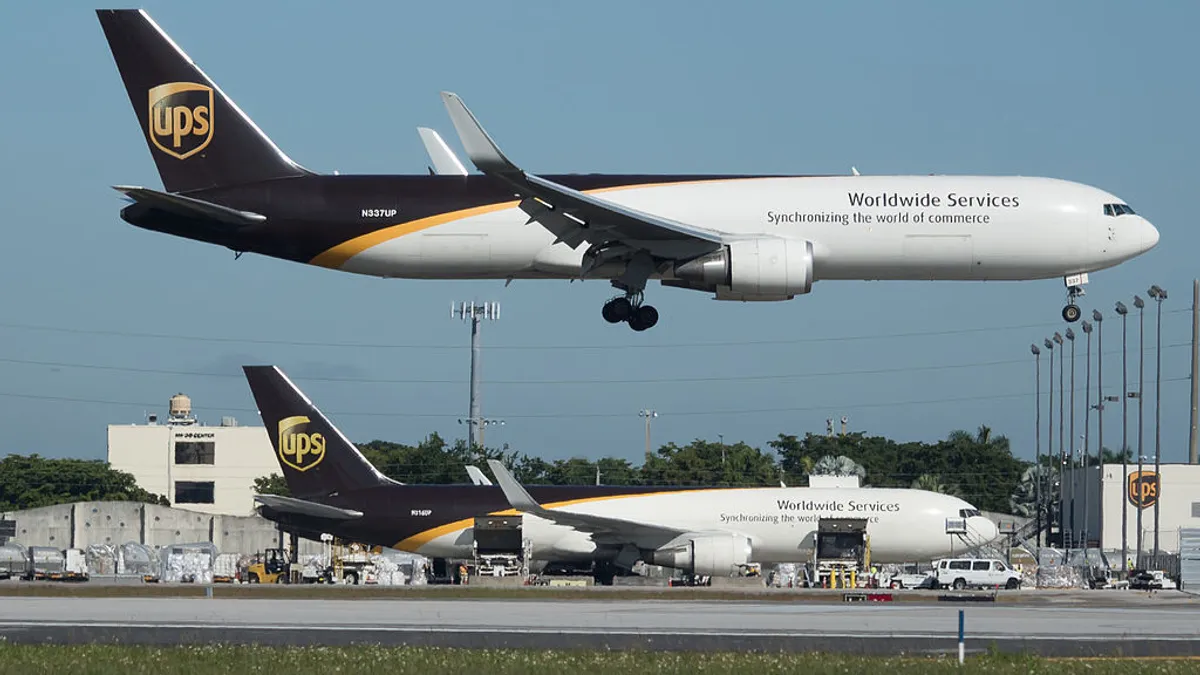Dive Brief:
- The TSA is reviewing current cargo security measures after finding a partially assembled bomb on a commercial cargo plane from Turkey to Australia shipped by a senior ISIS commander, reported CNN Politics last week.
- Called an "IKEA-style bomb" by industry experts, the partial assembly method raises concerns for TSA officials within the US. Semi-assembled bomb components could lead to easier bomb assembly by amateur extremists.
-
Changes in TSA policy have not been confirmed, though an airport security official stated that new safety protocols may not close every exploitable gap within airline cargo security.
Dive Insight:
Terrorists are no longer limiting their attacks to political parties or individual countries, instead taking direct aim at global supply chains.
In June, attacks on oil and gas made up 50% of the cyber-terrorism disrupting the worldwide supply chain, while within the past year, 40% of manufacturing companies were affected by cyber attacks, 38% of which incurred more than $1 million dollars in damages as a result. In fact, according to Glenn Gorman, CIO of Amber Road, a global software company, a growing number of successful hacks originate within supply chains — up to 80%, by some estimates.
The need for effective cyber security cannot be stressed enough. Within the supply chain, suppliers with which a company contracts must be fully updated on cyber security, and compliant in maintaining their own security channels. This includes patches, updates, and a willingness to invest in what has become a key component of asset protection.
As part of that process, accountability is required, whether by interaction with a third party security risk management service or by verifying that well-known and reliable systems are in place and well-maintained. Older systems that still function correctly are acceptable, as long as they operate with the most recent versions.













